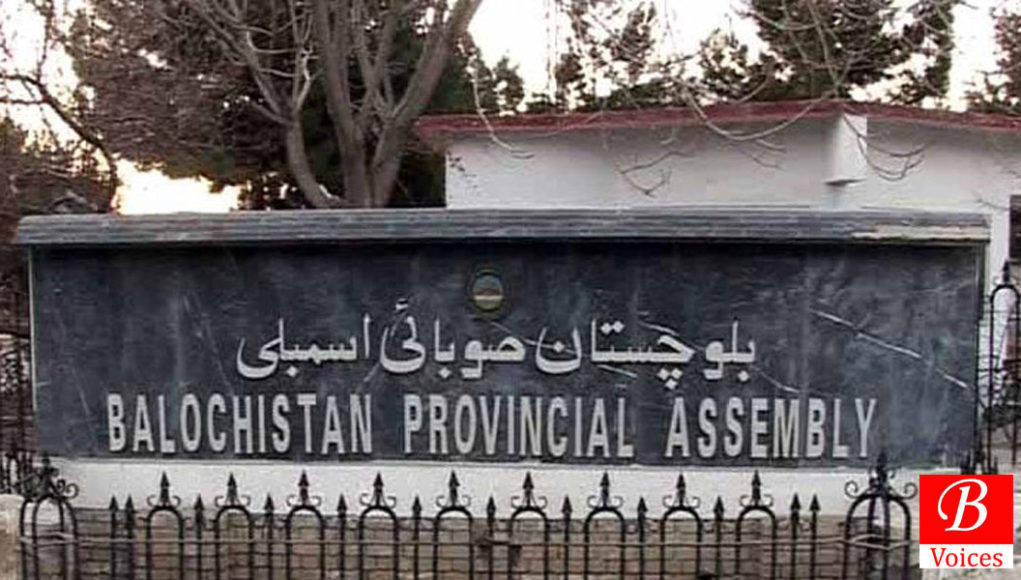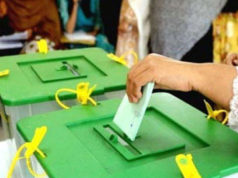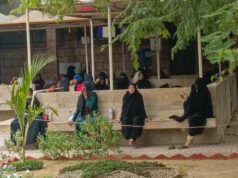Ayaz Khan
On January first, Balochistan provincial assembly suspended proceedings for 53 minutes and could not take up a single question due to the absence of relevant ministers and leader of the house, Chief Minister. The attendance record of Members of Provincial Assembly (MPAs) of Balochistan is not satisfactory despite the fact that they are highest paid legislators in Pakistan.
From a legislative point of view, assemblies lay at the top in terms of their importance in the law-making process in a democratic setup. Given the importance of legislators, do people who elect the parliamentarians have a say in the legislative process after they elect their representatives through elections and send them to assemblies? Here the question might get blur, however, the democracies in the world may have an answer to the question.
The case of the French Parliament
Article 162 of French Constitution strips a Member of Parliament MP of a third of his/her duty allowance if the MP participated in less than two-thirds of public votes—a bill related to a public matter to be voted by the members—during a session. However, the funds withheld can double in case the MP participates in less than half of all pubic votes. But, due to the ineffectiveness of the article 162, in May 2009 the French National Assembly passed a new ruling to curb the absenteeism of parliamentarians during sessions. As per the new ruling the absent MPs could see 25% reduction in their duty allowances.
The French Assembly’s strict move came after the masses took notice of absent MPs in parliament. The authors of research, Measuring the Effectiveness of Parliamentarians in French National Assembly, argue that there were numerous incidents which mobilized the masses to raise their concern about the absent MPs. As per the authors, bulldozing of an internet-related law by the opposition due to the presence of less than 40 members (out of 577 MPs) during the voting on the bill mobilized the masses to raise their concern about MPs’ absenteeism, which pressurised the Assembly to adopt strict measures regarding absent MPs.
Assessment of parliamentarians through the presence of parliamentary leaders in sittigns (2013-18)
To measure the performance of parliamentarians, attendance, participation in sittings, raising Point of Orders, presence during a voting on a bill about a matter of public interest and above all representation of their respective constituency are the important indicators in order to have a yardstick to measure their effectiveness. However, Balochistan Assembly’s unwillingness to share the attendance of its parliamentarians is the foremost hurdle to assess the effectiveness of the parliamentarians.
Attendance of the parliamentary leaders holds a key importance in parliamentary affairs whereas they come through the public vote which seeks their performance in return. After the general elections of 2013, the Balochistan government experienced a collation of National Party (NP) and Pakistan Muslim League Nawaz (PML-N) on treasury benches. However, Balochistan National Party (BNP), Awami National Party (ANP) and Jamait-e-Ulema-e-Islam Fazal made opposition alliance. During previous tenure 2013-18, the parties making government alliance attended the highest number of sittings. The assembly, through more than 30 sessions, conducted 149 sittings. Out of 149 sittings, the leader of PkMAP attended 111 sittings (74.5%) followed by ANP 94 (63%), Pakistan Muslim League PML 90 (60.4%), Mutahida Majlism-e-Amal 60 (40.27%), NP 38 (25.5), PML-N 13 (8.72%), Balochistan National Party Awami (BNP-A) 3 (2%) and BNP 2 (1.34%). However, both leader of the house and leader of opposition attended 83 and 81 sittings respectively.
“Attending sittings, participating in debate, raising questions, and taking part in government oversight practices is the basic responsibility of parliamentarians. These indicators are the reflection of effectiveness of the parliamentarians,” emphasized Mr Ahmed Bilal Mehboob, President Pakistan Institute of Legislative Development and Transparency, PILDAT, in a telephonic interview with Balochistan Voices. “In democracies throughout the world, absenteeism of parliamentarians is considered an unworthy act for the parliamentarians are the representatives elected by the people,” he added.
During the years when National Party was at the helm of the affairs of the province, the overall attendance of the leader of the house, CM, remained higher than the second leader of the house belonging to PML-N. According to data available with Free and Fair Election Network (FAFEN), the attendance of CM after first collation government completed its tenure declined significantly.
“We had significantly worked equally in terms of raising issues related to women and the masses. We, through various resolutions and bills, highlighted and debated harassment issues,” said former Member of Provincial Assembly (MPA) of National Party, Shama Ishaq Baloch.
Younas Baloch, provincial secretary Information of PML-N, said that during the tenure of last assembly PML-N led government took steps to improve law and order situation of Balochistan and improved living standards of the people. “Our parliamentary leader could not attend most of the sessions [of Balochistan Assembly] due to security reasons during first two and half years,” He told Balochistan Voices. He added “when PML-N parliamentary leader became Chief Minister He was too much busy in running the government and therefore He had to skip sessions of assembly,” Baloch argued.
Raising question to the relevant ministry and answers to those questions and raising issues through Point of Orders is key indicator to assess the parliamentarians’ engagement in public related matters. However, the Balochistan Assembly’s performance remains insignificant in terms of mentioned indicators.
A comparative assessment of Balochistan Assembly and Khyber Pakhtunkhwa
During the second, third and fourth parliamentary year, Balochistan Assembly saw a total number of 53 bills introduced. Parliamentarians sponsored as much as 201 resolutions; raised 510 questions; debated about the business of the assembly while raising 1049 Point of Orders POs. The Parliamentarians altogether put 44 adjournment motions. In contrast, the KPK Assembly, during its third and fourth parliamentary year, saw a passage of 86 bills. The parliamentarians sponsored a total number of 106 resolutions. However, the parliamentarians raised a significant number of questions. The total number of questions was 1336. The KPK Assembly also saw a total number of 14 adjournment motions, and total number of Point of Order POs remained 195.
With passing 12 private bills and adopting 16 private resolutions, KPK Assembly sets a significant example in showing good performance in terms legislative effectiveness. On the other hand, the Balochistan Assembly did not see any private bill throughout its legislative process. Passing private bills is considered important as it is neither introduced by a minister belonging to government nor it comes from opposition benches. In short, it is considered to be the impartial legislative process striking a balance in law-making mechanism. The resolutions raised in Balochistan Assembly throughout the parliamentary years mostly addressed to the government while pushing the matters of public concern at secondary level. However, the bills and resolutions passed and adopted by KPK Assembly mostly seemed addressing to the matters of public concern while keeping education, health, justice and human rights at first priority.
With respect to Call Attention Notices, a ruling through which an MP can drag the attention of the assembly to discuss an important public matter, KPK assembly’s performance remained better than that of Balochistan assembly. Balochistan assembly, with much delay, adopted the ruling through an amendment in its fourth parliamentary year.
Malik Sikandar Advocate is the Parliamentary leader of JUI-F. He said that JUI-F was in opposition during the tenure of last assembly and therefore the government neglected their suggestions for good governance and development. “If government had cooperated with our party then Balochistan assembly would have performed much better in terms of passing bills and debate issues of public importance,” He told Balochistan Voices.
People’s right to know about their assemblies
Transparency and knowing are close-related terms. The knowing quest increases the transparency in a democratic setup. For the public to know about their government departments, the governments give their masses access to their right to know through laws. Such a law is called a Right to Information Law (RTI). The assemblies of provinces, if such a law exists in the province, are bound to public their information for the consumption of the masses. Balochistan enacted its RTI law as early as in 2005. But, due to its ineffectiveness, masses remain unaware of the performance of their representatives. FAFEN, one of the parliamentary monitoring NGO, sent 8 right to information requests to Balochistan government in 2016 to know about the interventions or issues of Balochistan assembly. However, the secretariat could only respond to one request. On the other hand, KPK government having a strong Right to Information Law enacted in 2016, responded to 29 requests out of 33 forwarded by FAFEN.
“Knowing about their representatives is the fundamental right of the people. Withholding the information despite having a right to information law is questionable,” lamented Mr Ahmed Bilal Mehboob, president of PILDAT.
Share your comments!








